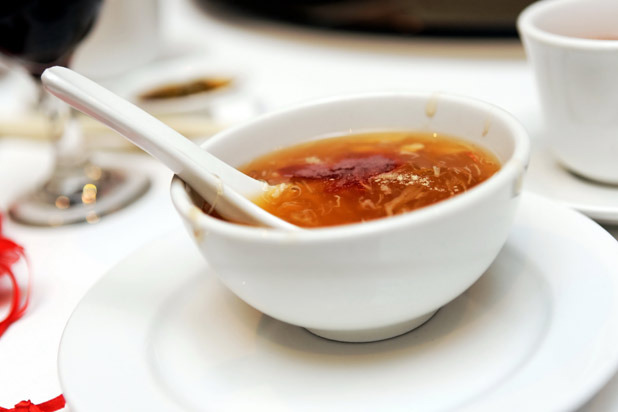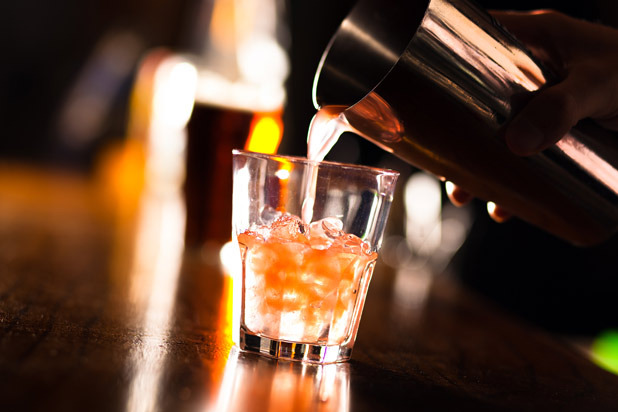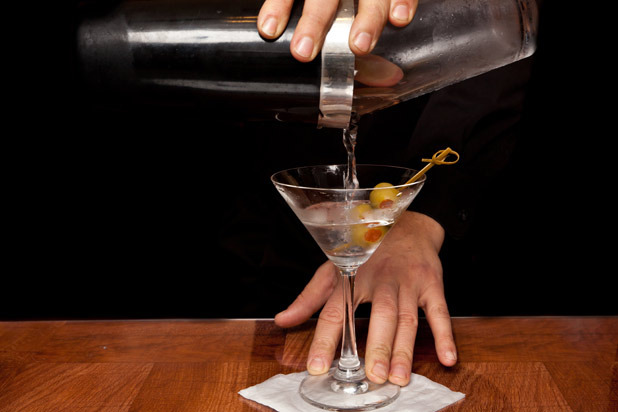10 New Food Laws In 2014 (Slideshow)
The most talked about new law for 2014 is Colorado's legalization of marijuana. Smoking or eating the drug is now legal in the Mile High City and other areas of the state. Time reports on the new "dinner and dope" combinations like honey miso salmon with Sour OG or Pakalolo shrimp with Pakistani kush.
2. Moms Keeps Placentas
New moms in Oregon can now take their placentas home from the hospital. Many mothers eat the placenta, which is crushed into capsules for consumption. Eating the placenta may help fight postpartum depression and restore pre-pregnancy hormone and nutrient levels. But there's no research confirming eating placentas has medical benefit.
3. Covering Up
File this under "shouldn't this already have been a law?" A new California food law requires no bare hand contact with ready-to-eat foods, such as salad, salad ingredients, bread, cold meats and sandwiches. Under the new law, food providers will have to use gloves or utensils when handling these read-to-eat foods. Isn't that just good hygiene? But hey, if it takes a law to make sure workers are wearing gloves, that's good for consumers, right? Still, chefs hate the new law, saying it's a hindrance while prepping food like sushi. Plus, they say it's bad for the environment since the gloves are thrown in the trash after use.
4. Allergy Awareness
The School Access to Emergency Epinephrine Act offers schools financial incentives to keep Epinephrine injectors on campus, since the medicine, if taken within minutes of exposure, can reverse the effects of an allergic reaction. Allergy experts say it's a good idea since one in four kids first experiences an allergic reaction to food while at school.
President Obama, whose daughter Malia has a peanut allergy, signed the law after two separate incidences of students who had peanut allergies dying after nut exposure at school.
5. Funeral Food Ban
Forget seeking the comfort of food if you are attending a funeral in Connecticut. State law prohibits the serving of food and beverages during a funeral. The law has been on the books for a while but a 2014 law forces the state to have a 10 member committee study whether changing the law is a good idea or not. Proponents say "why not?" But opponents say funerals should be about the deceased, not who serves the best buffet.
6. Vending Machine Calorie Counts
Want to eat your vending machine cookie, candy or potato chip snack guilt-free? That won't happen thanks to a new federal law that requires vending machines to list calories counts on all the snacks sold from the machine. The idea behind the law? To help snackers make healthy eating decisions. Luckily, with over 5000 vending machines in the country and regulations yet to be unveiled, it will take some time to see the effects of this law. Businesses will get a year to comply with the law.
7. Shark Fin Prohibition
If you love shark fin soup, you won't be able to get it in Delaware. The state banned the sale, possession or distribution of shark fins since demand for the fins, which is considered a delicacy, has resulted in sharks reaching endangered species status. Other large states that have outlawed this delicacy are New York and California as well as an additional eight states.
8. Costly Cocktails
Cocktail hour in Texas may be more expensive. Until this year, tax was only charged on beer and wine so drinkers who had fancy cocktails and other drinks didn't pay tax. The bar paid the tax, until now.
Under the new law, bar tax is being cut from 14 percent to 6.7 percent, so even so consumers will pay taxes on their drinks, at least the tax isn't as expensive as it used to be. Still some bars may cover the tax costs.
9. Later Last-Call
Drinkers in New Hampshire will have a little longer to celebrate their night out. A new law extends last call from 1 a.m. to 2 a.m. but it's not mandatory for all bars to honor the new closing time. It may help bars, especially seasonal ones make more money but opponents worry it may also promote bar hopping, excessive drinking, fights and drunk driving.
10. Connecticut Composting
The worm's the word in Connecticut, where a new law requires certain businesses, including commercial food wholesalers, supermarkets, and conference centers to start composting if they're located within 20 miles from an "authorized source-separated organic material composting facility" and generate at least 104 tons per year of "source-separated organic materials" each year.









